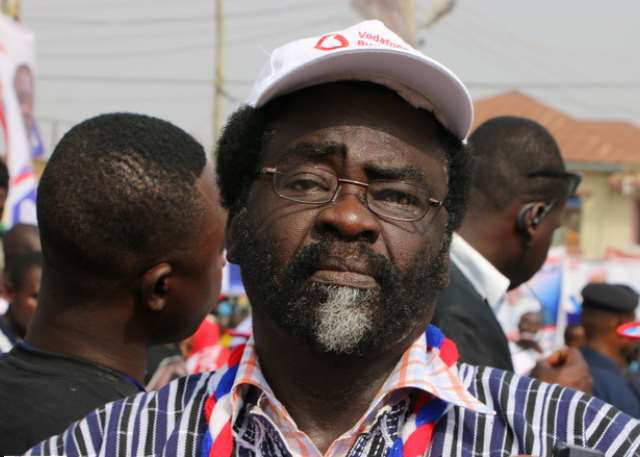The New Patriotic Party (NPP) in Ghana is facing a significant internal crisis, with prominent members publicly denouncing the party’s leadership and calling for the formation of a new political movement. Dr. Richard Amoako Baah, a long-standing member and political scientist, has launched a scathing attack on the NPP, labeling it as irrevocably corrupt and incompetent. He argues that the party’s current leadership is incapable of self-reform and advocates for the creation of a new party, tentatively named the New Patriotic Front, to embody the original ideals of the NPP. Dr. Amoako Baah’s criticisms extend beyond general accusations of corruption, pointing specifically to the presidency’s undue influence over the party and its alleged undermining of democratic processes. He criticizes what he sees as an overreach of presidential power and a disregard for internal party democracy. His call for a new party represents a deep fracture within the NPP and raises questions about the party’s future direction.
At the heart of Dr. Amoako Baah’s discontent is the belief that the NPP’s leadership has become entrenched in corrupt practices and is unwilling to address the issues plaguing the party. He contends that those responsible for the wrongdoing are the ones in positions of power, making internal reform impossible. He argues that attempting to change the party from within is futile, as the current leadership will actively resist any efforts to dislodge them. This perceived intransigence has led him to conclude that the only viable option is to abandon the existing NPP structure and create a new political entity. His call for supporters to join the New Patriotic Front underscores the depth of his disillusionment with the current state of the NPP and his belief that a fresh start is necessary.
Dr. Amoako Baah’s criticisms extend to the presidency, which he accuses of wielding excessive power and interfering in party affairs. He specifically points to instances where the presidency allegedly campaigned against fellow party members, a move he deems unacceptable and undemocratic. He questions the president’s authority to engage in such activities and criticizes the party chairman for not taking action against what he views as a clear abuse of power. This accusation highlights a power struggle within the NPP and suggests a lack of internal checks and balances on the presidency’s influence. Dr. Amoako Baah’s strong condemnation of the presidency’s actions underscores his commitment to upholding democratic principles within the party.
Furthermore, Dr. Amoako Baah’s concerns extend beyond internal party politics to encompass the government’s economic management. He attributes Ghana’s current financial challenges to misgovernance and a lack of accountability, directly linking the country’s economic woes to the NPP’s leadership. He specifically cites the situation at the Electricity Company of Ghana (ECG) as an example of mismanagement and corruption. His criticism of the government’s economic policies reflects a broader dissatisfaction with the NPP’s performance in handling the country’s economic affairs. He argues that the government’s actions have exacerbated the economic crisis and warns of dire consequences if corrective measures are not taken.
A key element of Dr. Amoako Baah’s critique of the government’s economic management is his accusation of excessive money printing. He alleges that the government has resorted to printing large volumes of currency to cover debts, a practice he believes has fueled inflation and destabilized the economy. He further claims that the printed money is being concealed, exacerbating the economic crisis. This accusation, if true, paints a grim picture of the government’s financial management and raises serious questions about transparency and accountability. Dr. Amoako Baah’s warning that Ghana is “doomed” unless someone with emergency powers intervenes underscores the severity of the situation as he perceives it.
Dr. Amoako Baah’s public denouncement of the NPP represents a significant challenge to the party’s leadership. His call for the creation of a new political movement, coupled with his accusations of corruption, incompetence, and economic mismanagement, could potentially trigger a wave of defections from the NPP. The success of the proposed New Patriotic Front remains uncertain, but Dr. Amoako Baah’s outspoken criticism highlights deep-seated divisions within the party and raises questions about its future. Whether the NPP can address these internal challenges and regain public trust remains to be seen. The formation of a new party could significantly reshape the political landscape in Ghana, potentially impacting the NPP’s electoral prospects and creating a new dynamic in the country’s political arena.














